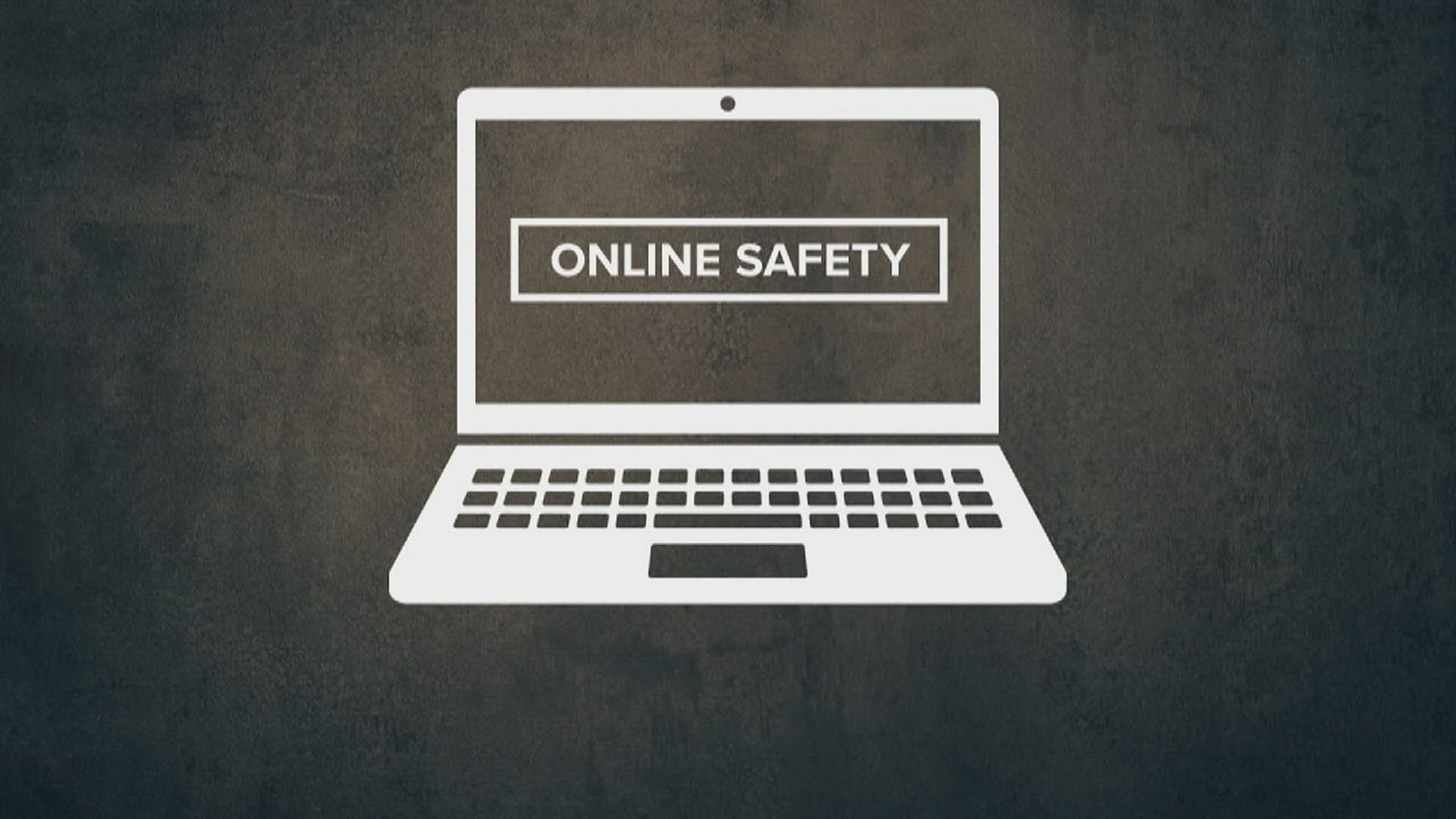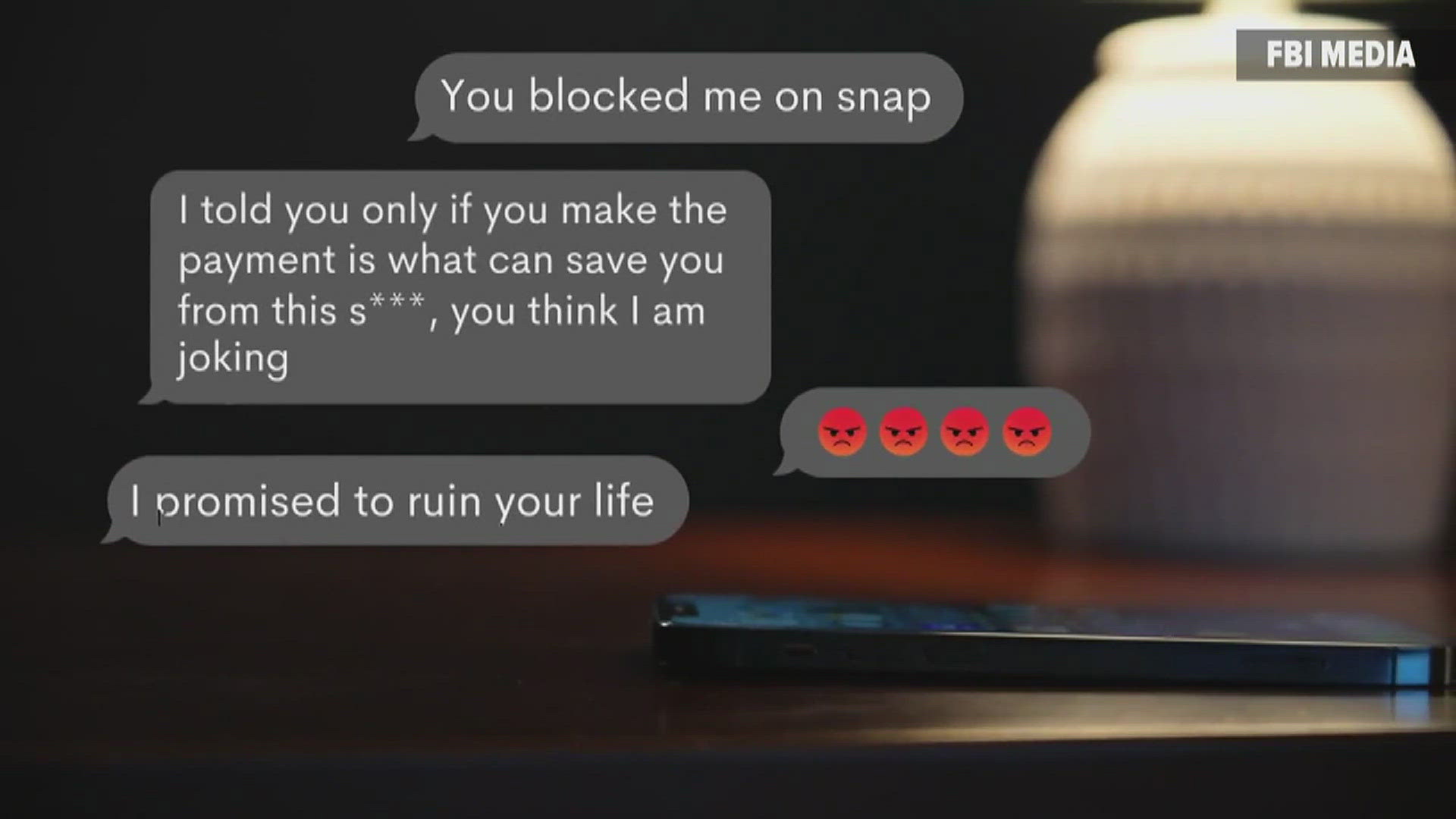BEAUMONT, Texas — It's called "sextortion" and involves children and teens being threatened and coerced into sending explicit images online.
The FBI has seen a huge increase in cases and so far the agency's Houston field office has received 80 sextortion reports in 2024 for the Gulf Coast region.
Texting is how many of our kids communicate, but if you think it's all only teenage fun on the line – think again.
Many think their own kid would never become a sextortion victim but they absolutely can, says Connor Hagan, a public affairs officer with the FBI's Houston field office.
And when it happens it can trap Southeast Texas kids in a cycle.
One victim's parent says their kid went from being bubbly and outgoing to becoming reserved, anxious and depressed, according to Hagan.
The parent described the change saying it was rapid, as if a light switch had been flipped, he said.
Predators subject children to different forms of abuse according to Hagan.
They groom kids into sending sexually explicit photos. They then use the photos, threatening violence or publication of them, to extort personal information from their victims.
Victims can also be coerced into harming themselves on camera.
"Instead of saying, 'send me more photos,' it becomes 'I want to see you harm yourself'," Hagan tells 12News. "We've even seen, you know, sadly, these kids forced into live streaming their own suicides."
"That's unacceptable," he says.
SOSA, which stands for "Safe From Online Sex Abuse," is a non-profit group, based in Connecticut, that brings attention to online child sex abuse and works with police to catch those using online platforms to exploit or abuse kids.
"What we're best known for is partnering with law enforcement to go undercover online in order to identify and apprehend perpetrators," says Roo Powell, CEO of the organization. "I will also sometimes pose as a bad parent or bad adult, somebody who is selling younger children."
"Sometimes these perpetrators do want to meet up with the kid," she says. "And so we will do a takedown. We currently have a 100% conviction rate."
"These guys are pretty notorious for just how much they can threaten and intimidate," explains Hagan.
A Magnolia man was arrested last year after he allegedly sold stolen initiate photos of minors online.
His victims were coerced into sending him more explicit images, according to an affidavit in the case.
"Do you want me to share all of this on the dark web with your friends? You want me to keep this a secret, right," he would ask them according to Hagan.
Both Hagan and Powell want to give the power back to parents and empower kids to speak up.
Even though a victim may have made a mistake it doesn't change the fact that they're a victim, according to Hagan.
"You are not in the wrong here. We want to help you," said Hagan. "And we want to get that guy off of the internet and behind bars."
There are safety controls available for parents to utilize.
"If you aren't absolutely aware of what games your kids are playing or who they're talking to all online, you're making a mistake," said Hagan.
"Kids are starting to use social media and gaming and the internet at much younger ages... it makes it very easy for them to be accessed by offenders," said Rosalia Rivera, the founder of ConsentParenting.
The FBI works side by side with Beaumont Police to collect and investigate the cases. The suspects are often times from all over the world.
"We need to stop these guys from being able to get in the phones of our kids, get into the minds of our kids, and you know, victimize our kids and harm them," Hagan said.
Southeast Texas parents do have ways that they can protect their children.
"Number one, delaying access to digital devices as long as possible. I know that's really hard in today's world. But that would be the first step," Rivera said. "But even before you get to that point, it's really important to educate yourself, and then educate your children. So really starting to get an understanding of what are those dangers... and then third is really to have a media agreement, a technology agreement with their child, before handing over that device."
When cell phones are absolutely needed, parents should shop for certain safety features.
"You want to have some strong parental controls, things that are pretty foolproof things that make it easy for a child or for the parent to report abuse," Rivera said.
The Bark Phone is the safest option, according to Rivera.
"I love the Bark Phone, because it keeps up with what is the language and what are the terms being used, that could still be red flags. So we want parents to have that kind of access without having to like check every text message," said Rivera.
She says the iPhone falls short.
"A child on iMessages wouldn't be able to report easily if they were being groomed," she said.
Luckily, there are companies dedicated to being proactive, like Snapchat. The application is tightening its protection against strangers online, giving parents some peace of mind.
"When we can tell that the friend request is coming from somebody that a teen may not know in real life, they'll get a pop up message that urges them to, you know, closely consider whether they want to accept that friend request. We're also preventing certain suspicious friend requests from even reaching the teen in the first instance," said Rachel Hochhauser with Snapchat.
This adds an extra layer of security along with the FBI and local police. This gives power back to the parents in the protection of their children.
"We're not just a bunch of suits in D.C. that fly in on a plane every Monday morning at eight and fly out at five. We're here. We want to protect our community," said Hagan.
If you believe you or someone you know is a victim of sextortion, there are ways to report it like calling the FBI's Houston office.
The FBI has a "phenomenal partnership" with the National Center for Missing and Exploited Children, according to Hagan.
The National Center for Missing and Exploited Children has many resources, including the ability to potentially take down video, or images from "certain websites," according to Hagan.
You can make a report online on the National Center for Missing and Exploited Children website, by using the cybertip line tool on their website. A report can be made for yourself or for someone you know who may be in a serious situation.
This is a developing story. We will update with more if and when we receive more confirmed information.
If you have information about a crime you could earn a cash reward of up to $1000 by providing an ANONYMOUS tip to Crime Stoppers of Southeast Texas.
Call 833-TIPS (8477) or download the P3Tips App on your mobile device to submit your tip anonymously.


